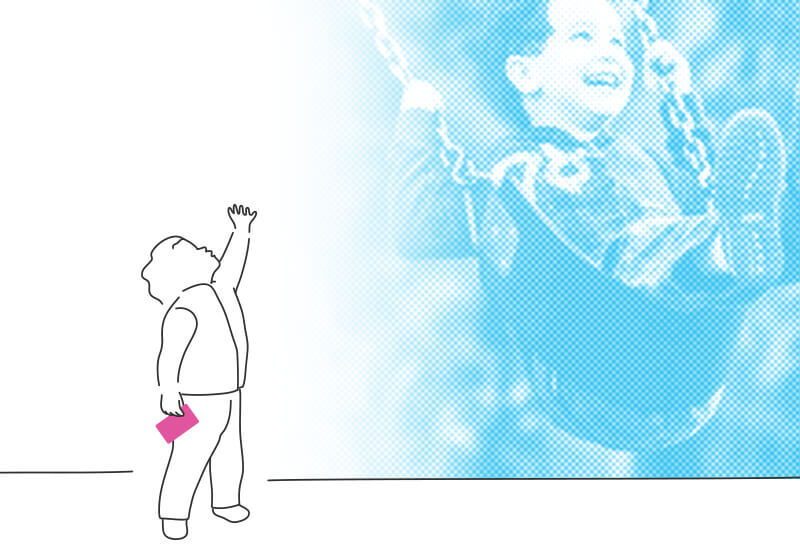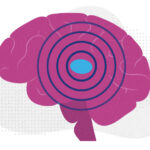How to help children with special needs during social distancing

As the weather warms up, many children are struggling with the effects of being stuck inside. For special needs children and their families, the challenges can be magnified. But there are some simple, yet effective, things that can help everyone survive — and perhaps even thrive — during this trying time.
With schools officially closed for the rest of the academic year, everyone is feeling the strain of sheltering at home to slow the spread of COVID-19. For kids with special needs, the changes to their routine, interrupted services, and lack of socialization can be especially daunting, says Dr. Michele Ledesma, a developmental-behavioral pediatrician with Boston Children’s Health Physicians. She says that this new “normal” can cause anxiety in children, which may present as tantrums or angry outbursts.
Tips to help families survive
To help families cope with the end of the school year, as well as the long hot summer months ahead, Dr. Ledesma offers the following suggestions:
- Create a basic structure to the day. Have a set routine to help kids know what to expect every day. “Aim to get up and go to bed at the same time every day, have scheduled mealtimes, scheduledtime for schoolwork or other activities, as well as scheduled quiet time or down time,” Dr. Ledesma says.
- Limit screen time. Exactly what those limits should be will vary depending on your child’s age and personality. But for most children, setting at least an hour of screen-free time before bed is important for sleep quality.
- Turn chores into exercise. “For kids who live in the city or an apartment complex where they don’t have outdoor space to access easily, children can help do some heavy lifting: carry a heavy basket of clothes, mop the floor, or push the vacuum cleaner,” Dr. Ledesma says. Such physical activities can help children work their muscles and let off some steam. Kids can also knead bread dough or sift rice with their hands to get sensory input, strengthen fine motor skills, and learn responsibility at the same time.
- Use everyday activities to promote social communication and interaction. Parents have done a tremendous job becoming teachers and therapists for their children at such short notice. But it also helps to incorporate teaching moments during everyday activities. At mealtime, for example, parents can model giving “some food for baby, some food for mommy, some food for daddy,” and so on. For more ideas, Dr. Ledesma recommends looking at An Early Start for Your Child with Autism, by Sally J. Rogers, which is a book designed to help parents use everyday activities as interventions.
- Practice yoga or mindfulness techniques. These activities can be a great way to reduce stress for the entire family and help everyone unwind at the end of the day, as well as teach self-awareness. “There’s a new book I love, Sitting Still Like a Frog,by Eline Snel that is great for young kids who need visual imagery to guide them,” Dr. Ledesma says.
- Get creative. Kids are missing their social connections. Although your child can’t get together with their friends in person, they can connect over Zoom or Facetime. Parents can also help them plan new ways to celebrate special occasions, such as through virtual birthday parties, drive-by visits, or other innovative ways to stay in touch while still respecting social distancing guidelines. Writing letters and sending them by snail mail is a great way to practice writing skills as well as learn how the postal service works, too.
- Learn something new. This summer is a great time for children to take on a new hobby or skill through virtual lessons or classes. This can help them stay busy and engaged, while also providing a convenient way to connect with peers and giving them a sense of accomplishment.
Keep it simple
While these tips can be essential to help families make the most of this unprecedented time, Dr. Ledesma stresses that these ideas can be integrated into what families are already doing, rather than requiring extra steps, which can be overwhelming.
For parents and children who need some extra help, she suggests talking to the pediatrician about their concerns. Pediatricians can refer children to a developmental-behavioral consultant or direct them to other resources as needed. With a little support, she says most special needs children will not only adapt to the current crisis, but may also find new ways to thrive.
Learn more about our response to COVID-19 and our telehealth visits.
Related Posts :
-

The hidden burden of solitude: How social withdrawal influences the adolescent brain
Adolescence is a period of social reorientation: a shift from a world centered on parents and family to one shaped ...
-

New research shows caregiver instability affects development
According to some estimates, more than 100 million children around the world experience separations from their caregiver every year. Previous research — ...
-

The thalamus: A potential therapeutic target for neurodevelopmental disorders
Years ago, as a neurology resident, Chinfei Chen, MD, PhD, cared for a 20-year-old woman who had experienced a very ...
-

A better treatment for endometriosis could lie in migraine medications
Endometriosis is a common, mysterious, often painful condition in which tissue similar to the uterine lining grows outside the uterus, ...





